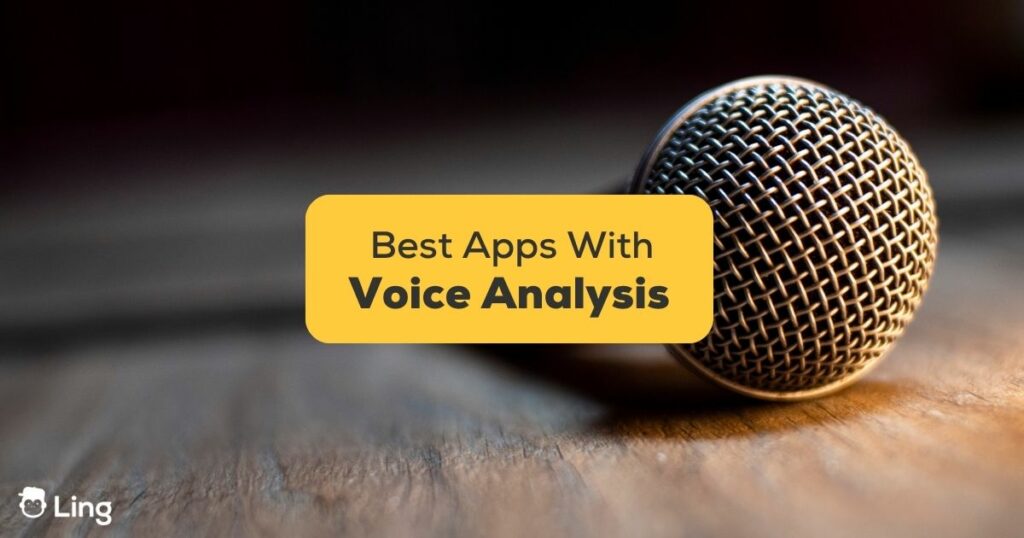Learning a new language used to entail many hours of studying from textbooks, didn’t it? Nowadays, language-learning apps have revolutionized the way we approach this type of learning. Features such as gamified exercises, leaderboards and competitions, and voice recognition software have changed things for the better.
Back in those days, to practice your pronunciation you had no choice but to do it in person. And let’s face it, not all of us like to make mistakes in public! Plus, language classes can be quite expensive. That’s where language apps with voice analysis come in. They help you know right away whether your pronunciation is correct; no need for teachers or language partners.
So, join us as we discover the 6 best language apps with voice analysis, or speech recognition, as it’s also known. We’ll start strong with an exceptional contender: the Ling app.
| Apps | Best For | Pricing Starts At |
|---|---|---|
| Ling | Comprehensive Language Learning | Free version / $14.99 per month |
| Rosetta Stone | Immersion | $15.99 per month |
| Duolingo | Beginners | Free version / $9.99 per month |
| Memrise | Chatbot Conversations | $14.99 per month |
| Busuu | Community Support | $13.90 per month |
| Babbel | Real-Life Situations | $9.60 per month |
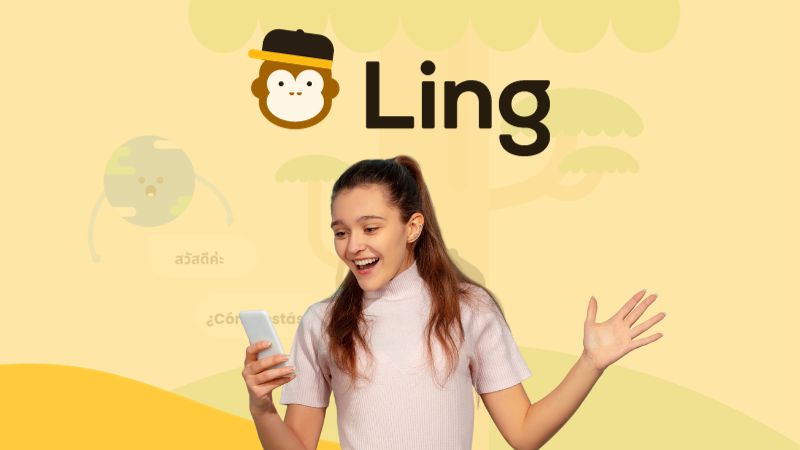
Ling – Best For Comprehensive Language Learning
As I said, the Ling app is a strong contender when it comes to ranking language-learning apps with voice analysis. That’s because voice recognition is far from this app’s only feature.
First of all, gamified learning. One of the things Ling does best is turning a sometimes daunting task like learning a new language into something fun and engaging. It does so via various fun and short exercises that teach you vocabulary, pronunciation, and even the alphabet when it’s not a Roman script.
With Ling, you’ll find features such as an AI chatbot to practice conversations with, leaderboards to rank in, and even a whole blog dedicated to exploring languages and cultures from around the world. And, of course, voice analysis! Using voice recognition, the app will instantly give you feedback on your pronunciation so you can be sure it’s correct from the start.
The app offers 60+ languages, from popular ones such as Spanish and Chinese to lesser-known ones like Swahili and Khmer, and it particularly excels when teaching Eastern European and Asian languages. Lessons are divided by proficiency into beginner, intermediate, upper intermediate, and advanced, so you’ll find your place no matter your level. And you don’t have to do the lessons in order, you can jump straight to what’s important to you!
Transform Your Language Skills in a Week – Get the Ling App Today!
Features
- On-the-Spot Feedback: Not sure if you’re saying a word right? The Ling app will tell you right away if you made a mistake.
- Sound Like a Local: All audio is recorded by native speakers, so you can be sure you’ll end up speaking like a local.
- Stay Hooked: Fun exercises, leaderboards, and experience points (banana points!) will ensure you keep up with your learning.
- Pick Your Language: Whether it’s French or Punjabi, Ling’s got you covered with over 60+ languages.
Pricing
- Free version with beginner lessons.
- $14.99 per month.
- $79.99 per year.
- $149.99 for lifetime access (one-time purchase).
Devices: Android, iOS, web.
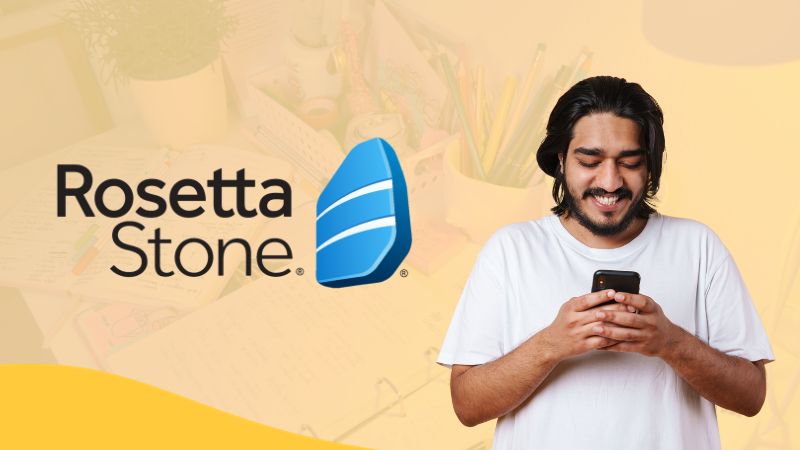
Rosetta Stone – Best For Immersion
Rosetta Stone has been playing the language-learning game for a long time. Its method is quite different from the one Ling uses, as it teaches by immersing you in your target language. And what’s immersion? It’s throwing you straight into the language pool and letting you figure out how to swim on your own.
Well, perhaps that’s a bit of a drastic way to put it. What Rosetta Stone does is teach you a new language without relying on translations, so you’ll be doing exercises only in your target language. The objective is that you learn much in the way children learn their native language, and let me tell you, this can be a pretty efficient method for many users.
On the subject of voice analysis, the platform’s strong card is TruAccent. This voice recognition technology analyses your speech and compares it to that of native speakers, ensuring your pronunciation is spot on. What’s more, Rosetta Stone will have you practicing your pronunciation right from the start, with the aim of giving you enough confidence to start speaking in your new language as soon as possible.
Features
- Master Your Pronunciation with TruAccent™: As mentioned, this voice analysis technology will give you feedback right away to ensure you sound just like native speakers.
- Focus on What You Need with Plans: Rosetta Stone has different plans depending on your learning objectives. Whether you’re learning for an upcoming trip or to communicate with your family, they’ve got you covered.
- Continue Your Learning Journey Offline: No Internet? No problem. The platform allows you to keep learning even when the Wi-Fi is down or you’re on the move.
Pricing
- 3 months for $47.97 ($15.99 per month).
- One year for $126 ($10.50 per month).
- Lifetime access for $199.
Devices: iOS, Android, and Web.
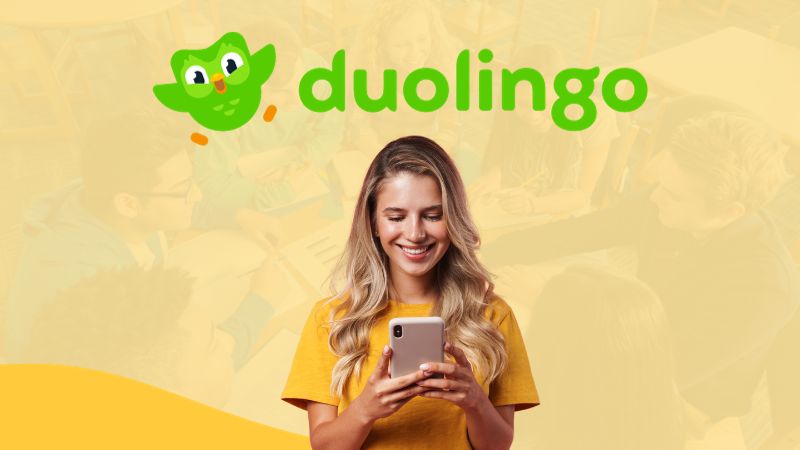
Duolingo – Best For Beginners
Everyone knows Duo, right? Duolingo’s insistent green owl mascot? There’s no denying they know what they’re doing when it comes to marketing. And with language learning, they know their game as well.
Duolingo, like Ling, has a gamified teaching method. It keeps its users coming back via short, engaging exercises, experience points, leaderboards, and tournaments. Plus, it teaches vocabulary in a simple and easy-to-digest way, which makes it ideal for beginners.
Similarly to the other apps on this list, Duolingo uses voice recognition to perfect your pronunciation. Many exercises involve repeating words and phrases over and over, and instant pronunciation feedback ensures you get them right.
Features
- Perfect Pronunciation: With voice recognition, Duolingo ensures that when you repeat a word, you say it right.
- Good-Looking Interface: Something I personally like about Duolingo is its look. It’s colorful yet pleasant, plus quite easy to use.
- 40+ Languages: I must say it, it doesn’t have as many as the Ling app, but Duolingo gives you plenty of options when choosing your target language.
Pricing
- Most features are free.
- Super Duolingo: $9.99/month (no ads and bonus features).
- Yearly subscription: $83.99.
Devices: Android, iOS, Web.
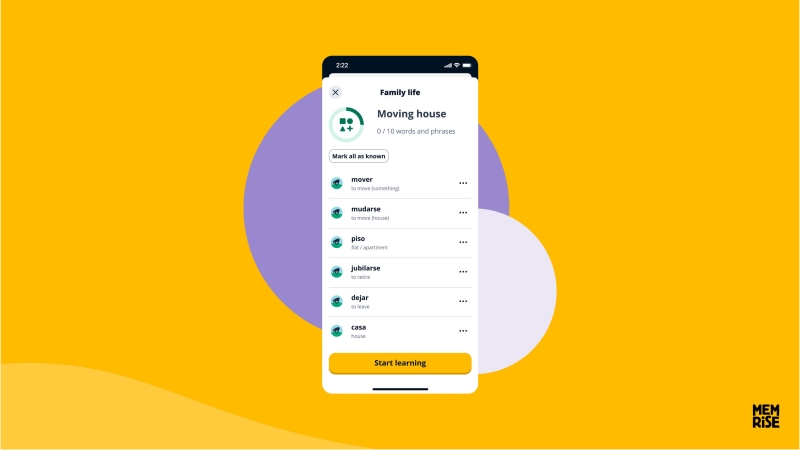
Memrise – Best For Chatbot Conversations
Another app with voice recognition is Memrise. Much like the Ling App and Rosetta Stone, it uses this tech to ensure your pronunciation is correct. It will also give you feedback right away so you can adjust and fine-tune your speaking skills right from the start.
What’s attractive about Memrise’s method is that it teaches you your target language via thousands of audio and video clips of native speakers. This means you’ll hear the language in context, not in a textbook way, enabling you to pick up on nuances you otherwise might miss.
With Memrise, lessons are short, and you can choose the topics you’ll be learning about. You’ll also get instant feedback when conversing with MemBot, their AI chatbot, which also relies on voice analysis. All in all, it’s a good option for language learning, even when some might prefer a more gamified approach, such as Ling’s.
Features
- Bite-Sized Lessons: 15-minute lessons mean you’ll see progress even when you don’t have that much free time for studying.
- AI Conversation Partner: As mentioned, MemBot will use voice analysis to help you practice conversations and improve your pronunciation in a safe environment.
- Offline Mode: Similar to Rosetta Stone, Memrise lets you continue your studies even when you don’t have Wi-Fi access.
Pricing
- Free version with limited features.
- Monthly subscription: $14.99
- Annual subscription: $89.99
- Lifetime subscription: $199.99
Devices: Android, iOS, web.
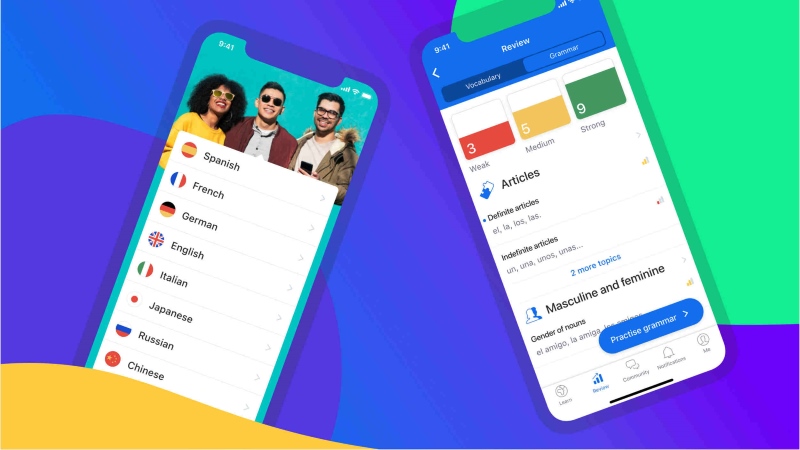
Busuu – Best For Community Support
Another app on our list has to be Busuu. It takes a real-life approach to language learning, teaching you languages with various exercises and video flashcards that feature real people while giving you insights into the language’s culture.
Sadly, Busuu only has voice recognition exercises for five of its 14 language courses: Spanish, English, German, and French, but they aim to have more in the future. For those four languages, immediate feedback on your pronunciation means you’ll be able to repeat words and phrases and know right away if you’ve said them right.
Something of note about Busuu is its Community feature. With it, you can get help from users who speak your target language, while sharing tips on your native language in return. As such, you can submit your exercises and have a global community of language learners correct them and lend you a helping hand.
Features
- Vocabulary Trainer: This feature lets you review vocabulary or learn new ones. Its offline mode makes it ideal for long bus or subway rides.
- Connect with Other Users: As mentioned, Busuu’s Community will help you with your learning, and you’ll be able to help others in return.
- Reminders: Busuu will ask you when you want to study and how much time you have available, sending you notifications so you don’t skip a day.
Pricing
- Free version with basic language learning features.
- Premium subscription for one month: $13.90
- 6 months: $83.40
- 12 months: $166.80
Devices: Android, iOS, web.
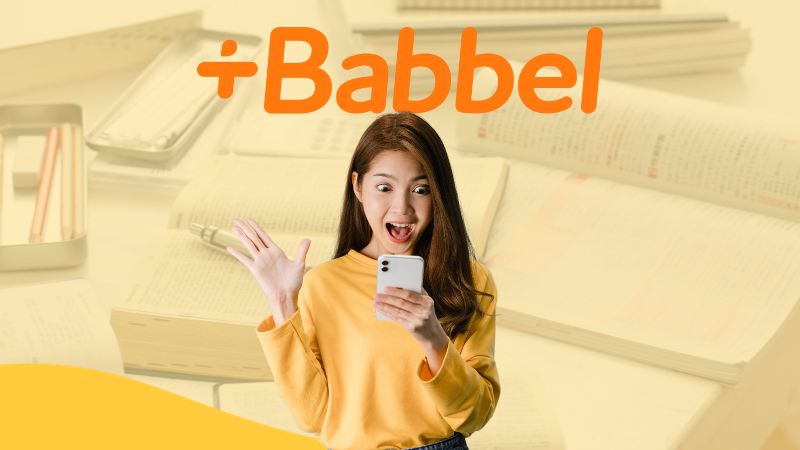
Babbel – Best For Real-Life Situations
If you need another app that uses voice recognition, we’ve got Babbel. Like the apps above, it uses this technology to improve your pronunciation and help you sound like a native speaker.
With short 15-minute lessons, you’ll be able to learn a new language even with a busy schedule. What’s more, Babel’s lessons focus on teaching you all language skills: reading, writing, speaking, and listening. Furthermore, Babbel’s curriculum was designed by language experts, so you know you’ll be in good hands.
A bonus feature: Babbel has a subscription plan called Babbel Live. With it, you get lessons with expert teachers in small virtual classrooms. With many classes available, this can be a great option for those who prefer a more social approach to language learning.
Features
- Pronunciation Practice: As we’ve said, Babbel relies on its speech recognition technology to ensure you’re pronouncing words correctly.
- Review What You’ve Learned: The review feature helps make sure that what you’ve learned stays in your memory in the long term.
- Situational Learning: With Babbel, you’ll find lessons that suit your learning objectives, be they travel, business, work, and much more.
Pricing
- Free version with access to the first lesson in every course.
- 1 month (one language): $9.60
- 3 months (one language): $24.45
- 12 months (one language): $57.60
- Lifetime (all languages): $190.99
Devices: Android, iOS, web.
Why Is Voice Analysis Important For Language Learning?
For language learners seeking to actively communicate in their target language, that is, not just to read or listen, pronunciation is evidently essential. After all, what use is spending many hours learning a language if when the time comes to speak it, no one understands you?
That’s where apps with voice analysis come in. By ensuring you’re pronouncing words correctly as soon as you learn them, they make sure all the hours you’ve dedicated to studying bear fruit. And you don’t even have to wait; you get feedback instantly.
Another benefit of voice recognition apps is for those of us who are a bit shy. After all, speaking in public is not for everyone. Many students wince when the teacher says it’s time for the oral exam, don’t they? Well, with language apps with voice analysis, that’s never a problem. Since an inanimate device is judging your pronunciation, you can make all the mistakes you need!
Finally, by being able to compare your pronunciation with that of native speakers, this technology has an advantage traditional learning methods don’t have. You’re not relying on your teacher’s or language partner’s grasp of the language; you’re using an objective analysis to determine if your pronunciation is correct. (But that’s not to say teachers aren’t awesome, obviously!)
Work On Your Pronunciation With Ling!
As we’ve seen, there’s no shortage of options when it comes to language learning apps with speech recognition. From Rosetta Stone’s TruAccent to Memrise’s Membot, each uses this technology in different ways, all making sure it benefits their users.
And Ling is no different! Among the many interactive exercises the app has, repeating words and phrases aims to get you to actually speak the language you’re learning, and speak it right. If you’re planning a trip or doing business in another country, this aspect of language learning is crucial.
But that’s definitely not all Ling has to offer. With lessons in over 60 languages, a gamified and easy-to-use interface, an AI chatbot to converse with, and many more features, Ling covers all your language needs.
To sum up, when it comes to combining voice analysis technology with a gamified approach to language learning, Ling takes the price. So, if you’re looking for an all-encompassing app that makes sure you’re pronouncing words correctly, you’ve found it! Ling is available for download from the App Store or Play Store and has a free 7-day trial!
